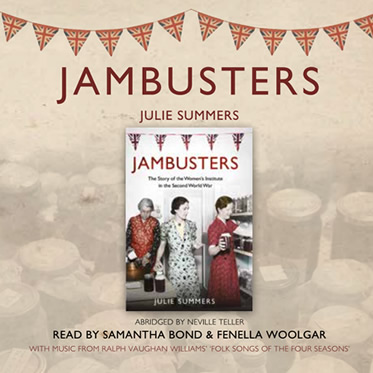
However I have always wanted to be a writer and when the opportunity arose to work on a biography of my great uncle, Sandy Irvine, I took it with relish. Born on the Wirral and brought up in Cheshire, I spent the first half of her career working in the art world. Jambusters has whet my appetite for more narrative history of the home front during WWII and I'll be on the lookout for interesting ones.I am the author of eleven works of non-fiction, including the best-selling book Jambusters which inspired the ITV drama series Home Fires.

There were also enough copy-editing errors to be noticed, which is somehow especially disappointing in non-fiction I shouldn't hold it to a higher standard, but I do. The book was generally well-written, although telling this story requires a lot of names and a lot places and it was a constant challenge trying to keep it all straight as names were introduced and then reappeared in later chapters. I'd never heard of The Women's Institute before reading this book, but everything they stand for and strive to achieve makes them very much a community I'd like to be a part of if I lived in a rural part of the UK (in order to have a local institute, a town/village had to be beneath a certain population ceiling), but the amount of hard work they put in (or did during the war) is admittedly, daunting. What these women were able to do every single day for years both during and after the war is purely mind-boggling to someone from a later, much more leisurely, era. 10/10 ( )Ī very good and inspiriting look at what The Women's Institutes were able to achieve to keep Great Britain going during WWII. This just reinforced how amazing women truly are. (Many local chapters kept farm animals which they then sold to raise funds for war work.) I knew that they were a social group but I had no idea just how large of a role that they played. The main goal of the WI was to provide a space for women to socialize (there's real value in this) and educate themselves on everything from how to preserve food and stretch out their meager rations to animal husbandry. Not only was the WI important during the war for the nation but even more so for women who made up its membership. These women played hosts to evacuees, took over the role of primary household manager, assumed the responsibility for the nation's food production, and so much more. This volume was specifically about the role that the Women's Institute (WI) performed on both the national and county levels. While I enjoyed reading all of Summers' books, Jambusters: The Story of the Women's Institute in the Second World War was my favorite of the lot.


 0 kommentar(er)
0 kommentar(er)
